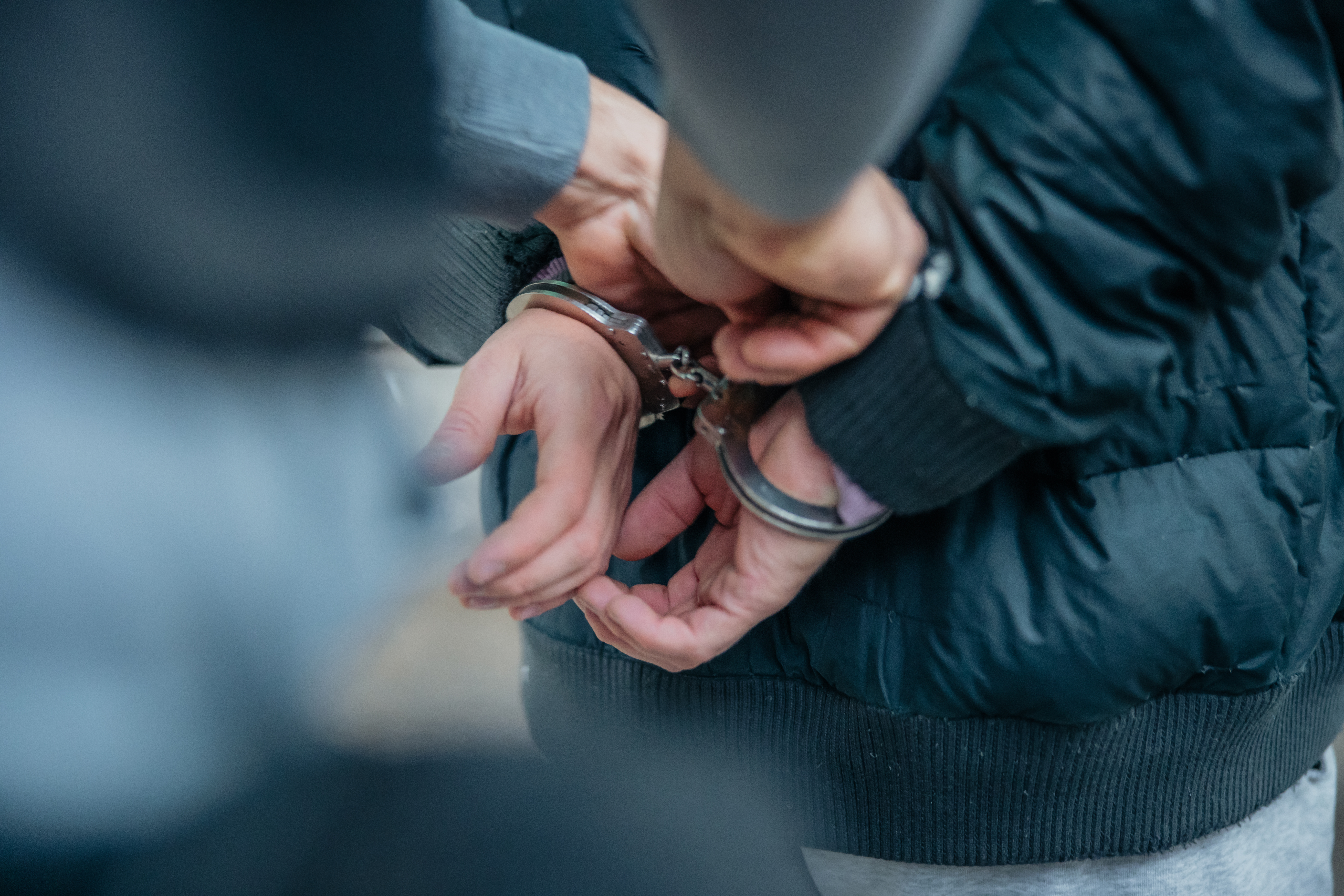
As a parent, there is nothing that elicits more fear than a phone call from the hospital or from the county jail. We all make bad decisions at some point in our lives, and our kids are not exempt from learning those life lessons. Hearing the ill-fated words, “I’ve been arrested” is enough to induce panic and anxiety in any parent. A single decision made “in the moment” can have serious consequences, even when your child has no prior criminal history.
What To Do Immediately Following Your Child’s Arrest
Just because your child does not have any criminal record does not mean that the prosecuting attorney, whether it be the District Attorney’s Office or the County Attorney’s Office, will be lenient on them. Even if this is a first-time offense, you’ll still need to take the following steps to protect your child and their future.
1. Stay Calm
The best practice following an arrest is to remain calm so that you can think and act logically. By remaining calm, you won’t be as likely to make impulsive decisions that could potentially harm your child’s case or impulsively act on emotionally-charged decisions you may regret later.
Having mixed emotions is completely normal for any parent dealing a child being arrested. And, while you may want to knock some common sense into them when you pick them up at the jail, it is important to remember that emotions such as anger won’t help the situation. Sometimes, despite our best efforts, kids make unwise decisions. No matter how angry you are, you need to set that aside to ensure that any decisions made at this juncture go towards minimizing any potential adverse consequences your child may face, as opposed to driving them away and wanting to deal with it based upon what they read on the internet or heard while in jail.
2. Pay Bail Or Contact A Bondsman
After you get past the initial shock of an arrest, the first thing you’ll want to do is get your child out of jail and home safely. In order to get them released from jail, you’ll be required to pay bail. In Williamson County, the magistration process happens relatively quickly, and bonds are set in most cases within 48 hours.
Depending upon the nature of the crime, and if you hired an attorney or your child asked for a court-appointed attorney, it may be possible to get a personal recognizance bond. This means that after paying a minimal processing fee, your child promises to appear at all future court dates, and abide by any bond conditions placed upon them by the magistrate, or they go back to jail.
3. Contact An Attorney
One of the most important steps you need to take after an arrest is to contact an experienced criminal defense attorney. The facts surrounding the stop, detention, and arrest are extremely important. Furthermore, depending upon the nature of the offense, there may be an administrative aspect of the case, such as an administrative appeal to keep a driver’s license when charged with DWI or DUI, that will require immediate attention on your part, which if done correctly can provide you with a distinct advantage in your case. Having an experienced attorney on your case as soon as possible can help you prepare and potentially uncover advantages to your defense in court.
Additionally, your criminal defense attorney can serve as an excellent resource for knowledge and insight to moving forward after an arrest, especially when it comes to coming up with creative ideas that may lead to the dismissal of the case, or getting the charges reduced, depending upon the nature of the crime, and your child’s criminal history.
4. Find A Source Of Support For You And Your Child
Being arrested or having someone close to you be arrested is no minor matter. This is an emotional and difficult time for your family. Don’t underestimate the power of having someone to help you deal with your thoughts and feelings. Seek out someone you can all talk to – preferable a licensed professional counselor or a minister. By using a licensed professional, or a minister, not only can you gain some insight into dealing with the situation, but your attorney has a better chance of keeping such information from being discovered and used against your child should the case go to trial. Your child can benefit immensely by having someone to talk to and guide them after an arrest, because having a mentor or guide can help them keep their future intact.
Collateral Consequences Your Child May Face If Arrested
After dealing with the initial shock of your child being arrested, you may start to wonder about the punishment range that your child faces for the crime that they are accused of doing. While most attorneys can give you the general range of punishment, it is important to know that in addition to potential jail time, probation, or fines, there are other types of consequences your child could face depending upon the nature of the offense. These “collateral consequences” are creatures of statute, and are usually not found in the criminal code. The severity of these consequences can depend heavily on the circumstances surrounding the arrest and whether your child has a criminal record. Take a look at some of the repercussions your child, and subsequently, your family, can face:
1. Temporary Loss Of Driver’s License
A common collateral consequence following an arrest for drug possession, or DWI/DUI is the temporary loss of driving privileges. For example, a conviction for possessing any type of drugs, whether it be marijuana, someone else’s Xanax or Oxycontin, will result in your child losing their driver’s license for 180 days. However, the criminal penalties for some substances such as methamphetamines, cocaine or heroine can be more severe, depending on the quantity involved. With that said, there are ways to craft a resolution to the situation so that your child does not lose their driver’s license, and you don’t return to being an involuntary chauffer for the next six months.
2. Loss Or Forfeiture Of Educating Funding (Scholarships, Grants, etc.)
Many students – and their families – may not think about how an arrest or conviction can affect their educational pursuit. They may have falsified perceptions that an arrest simply results in serving community service or paying a fine, but this isn’t always the case.
Any individual arrested for a felony can become ineligible for Texas education scholarships and grants and may face losing the ones they’ve already gained. For college students depending on grants and scholarships to fund their education, this consequence will become a major obstacle in achieving their degree and potentially pose a financial hardship on a student or family. Also, convictions for drug possession, and yes this means Marijuana, can also impact the availability of state and federal funding for college, community college, or vocational and technical schools.
3. Ineligible To Reside In On-Campus Housing At a Higher Education Institution
Any arrest is problematic for an adolescent and it can present major hurdles if your child is beginning college. Any institution of higher education is entitled to obtain a background check that reflects a person’s criminal history, including arrests, on a student that applies to reside in on-campus housing at a college or university. If your child is attending college soon and is planning on living in a dormitory or on-campus apartment, they could be reasonably denied by the college to do so, depending upon the nature of the offense.
A child’s arrest and potential conviction present a difficult situation for your family, which is why you need an experienced criminal defense attorney to represent your child’s rights and help you navigate through the complicated process. If your child has been arrested, contact my office immediately.
